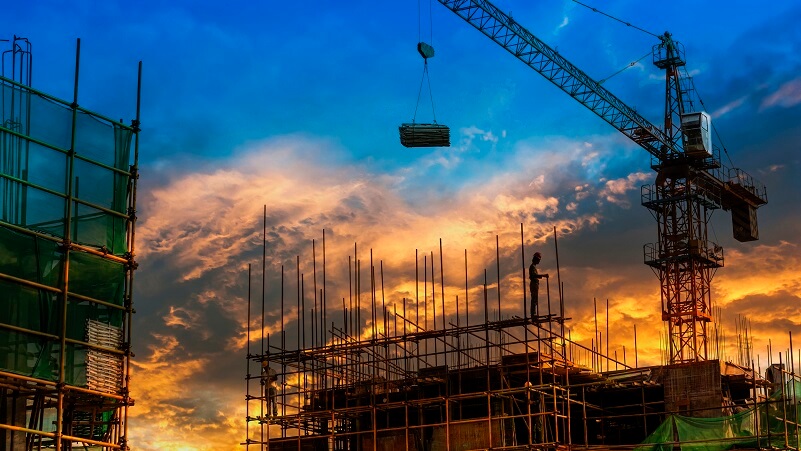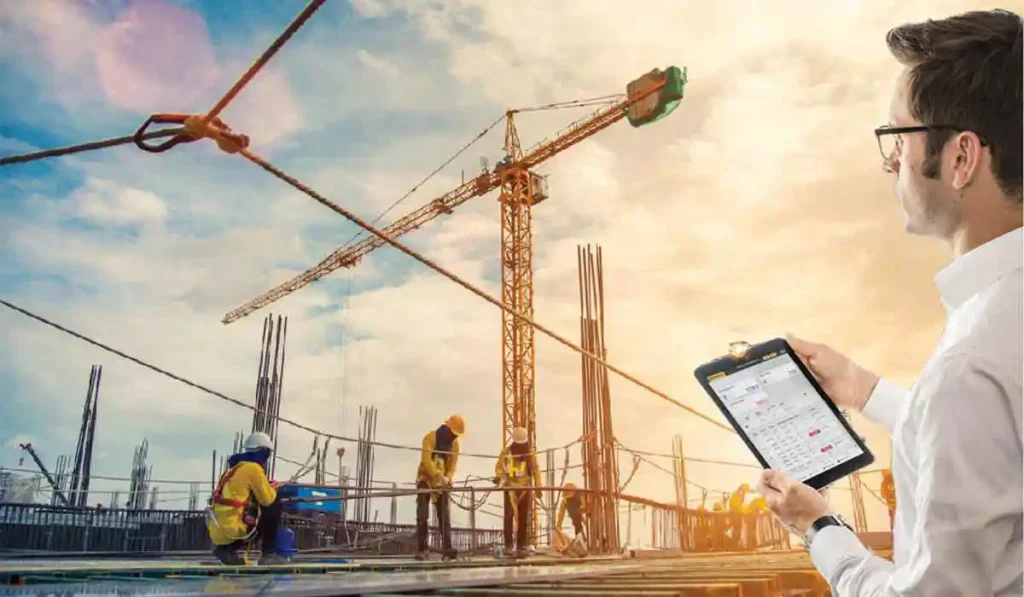Construction Industry with Gloomy Prospects

Construction prospects are getting bleaker and construction project cancellations are on the rise. Builders and builders fear rising interest rates and expensive materials. Rents are going up.
In recent years of crisis, construction has always provided a stable base for the economy. This foundation collapses at the end of the year. In November, the number of cancellations in housing construction increased. This is the result of sector surveys carried out by the Ifo Institute. IFO researcher Felix Liss told ZDFheute:
Construction prospects are getting bleaker and construction project cancellations are on the rise. Builders and builders fear rising interest rates and expensive materials. Rents are going up.
The corporate climate is as grim as it has been since polls began in 1991.
Cancellations are piling up in the Construction Industry
The paradox of the current situation: despite the difficult situation, companies feel compelled to raise prices even more. It usually works the other way around: if the economic situation worsens, prices tend to fall to win more orders. However, this is simply not possible due to the high price of energy and materials, because there is almost no room for maneuver.
The Ifo Institute has noticed an increase in cancellations since spring. This puts pressure on the homebuilding industry in equal measure. The central association of the German construction industry expects a sharp drop in newly built apartments: just 245,000 apartments are expected to be completed next year. That’s about 12 percent below this year’s 280,000 – the third consecutive decline.
This hampers the coalition agreement of the Berlin Traffic Light Alliance. Because the three parties have set a target of 400,000 newly built apartments per year in order to ensure more affordable living space. Here, too, the current crisis is counteracting this through generally higher prices. and higher interest rates.
Building Rates are Rising
In response to high inflation, the European Central Bank has already made four big interest rate hikes this year. Another 0.5 percent was in mid-December. The main interest rate is now 2.5 percent. Increases that were planned for a long time and then actually happened have raised interest rates in capital markets generally to the present day – particularly construction interest rates.
As mortgage loans become more expensive as interest rates and construction costs increase at the same time, fewer people are likely to buy an apartment or build a house. This, in turn, has an impact on the rental market. Because those who are still relatively wealthy are also big buyers of apartments for rent.
Significantly higher Rental Costs
In any case, the rental market is currently also a difficult area for tenants in financial terms: net rents have been rising for a long time. However, as inflation rises, so do extra legal costs such as insurance and fees around your four walls. However, above all it was the extra costs such as hot water and heating, which have obviously disappeared. Michael Voigtlander said:
We are seeing the affordability of rented housing on the decline.
As a researcher at the German Institute of Economics, he has just carried out a study on the state of the rental market for Deutsche Invest Immobilien (di.i.).
Total rents increased nearly 11 percent
All tenants are affected by additional higher rent costs. However, it particularly affected less well-off and poorer families. Because with them, due to the relatively small budget, additional rental costs have a greater impact. And the increases are huge. According to Voigtländer’s calculations, average gross rents in this country increased by around 11% last year.
Rising heating costs account for the bulk of price increases, rising by an average of 48% in one year.
Rising costs and overheads, fewer new buildings and higher demand for living space, especially in urban areas: the situation in the construction and rental markets is expected to remain tense in 2023.

